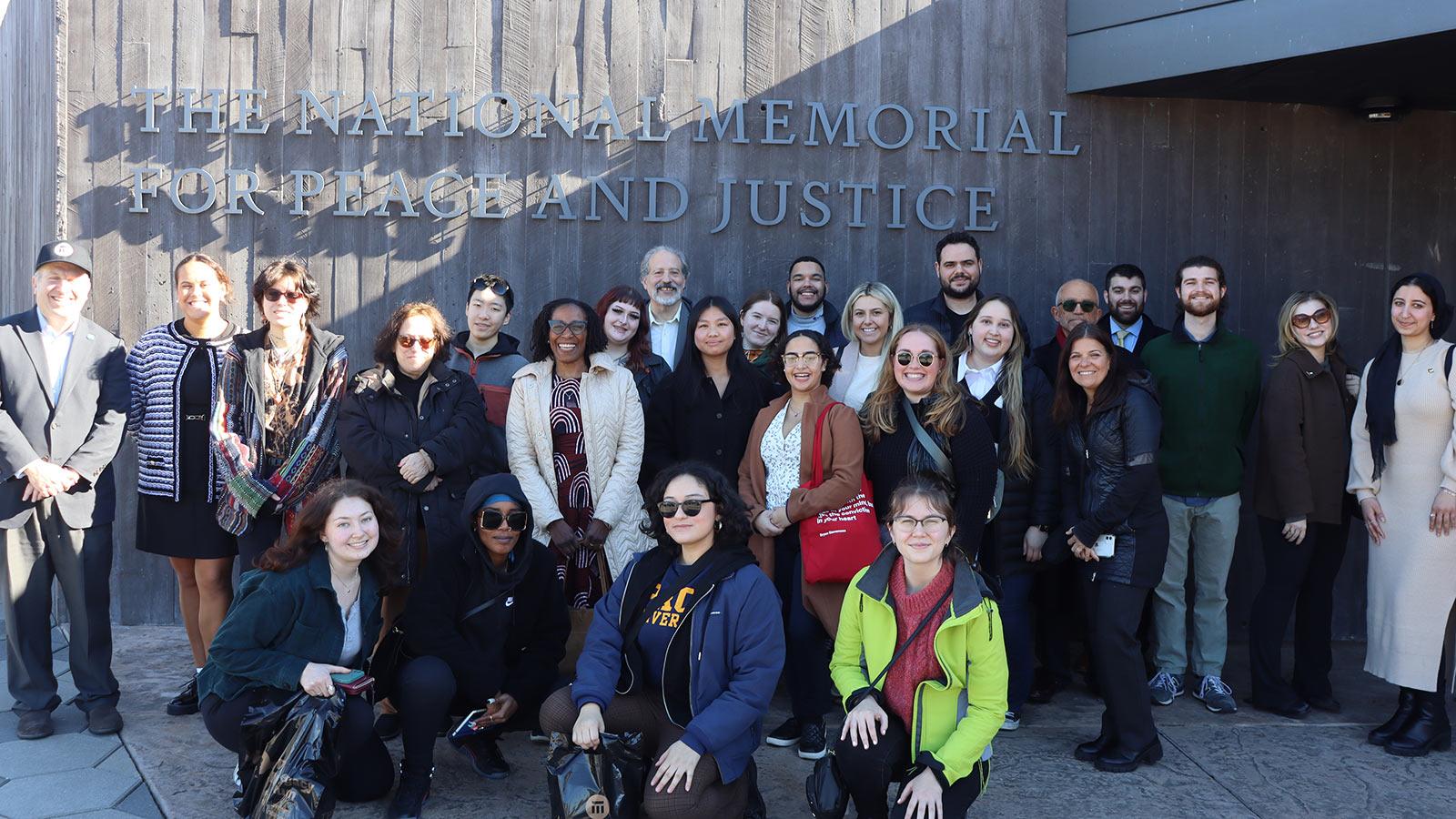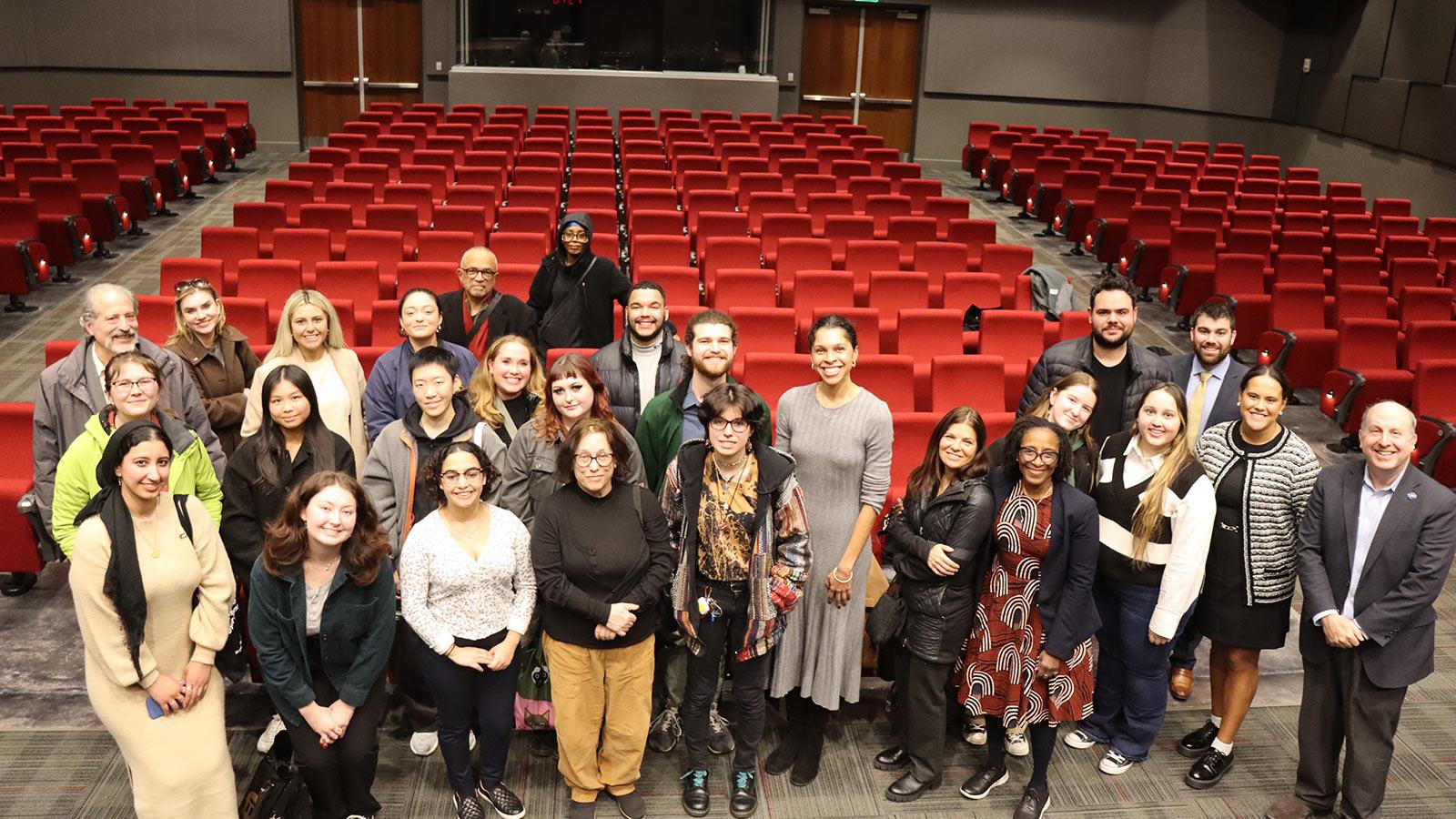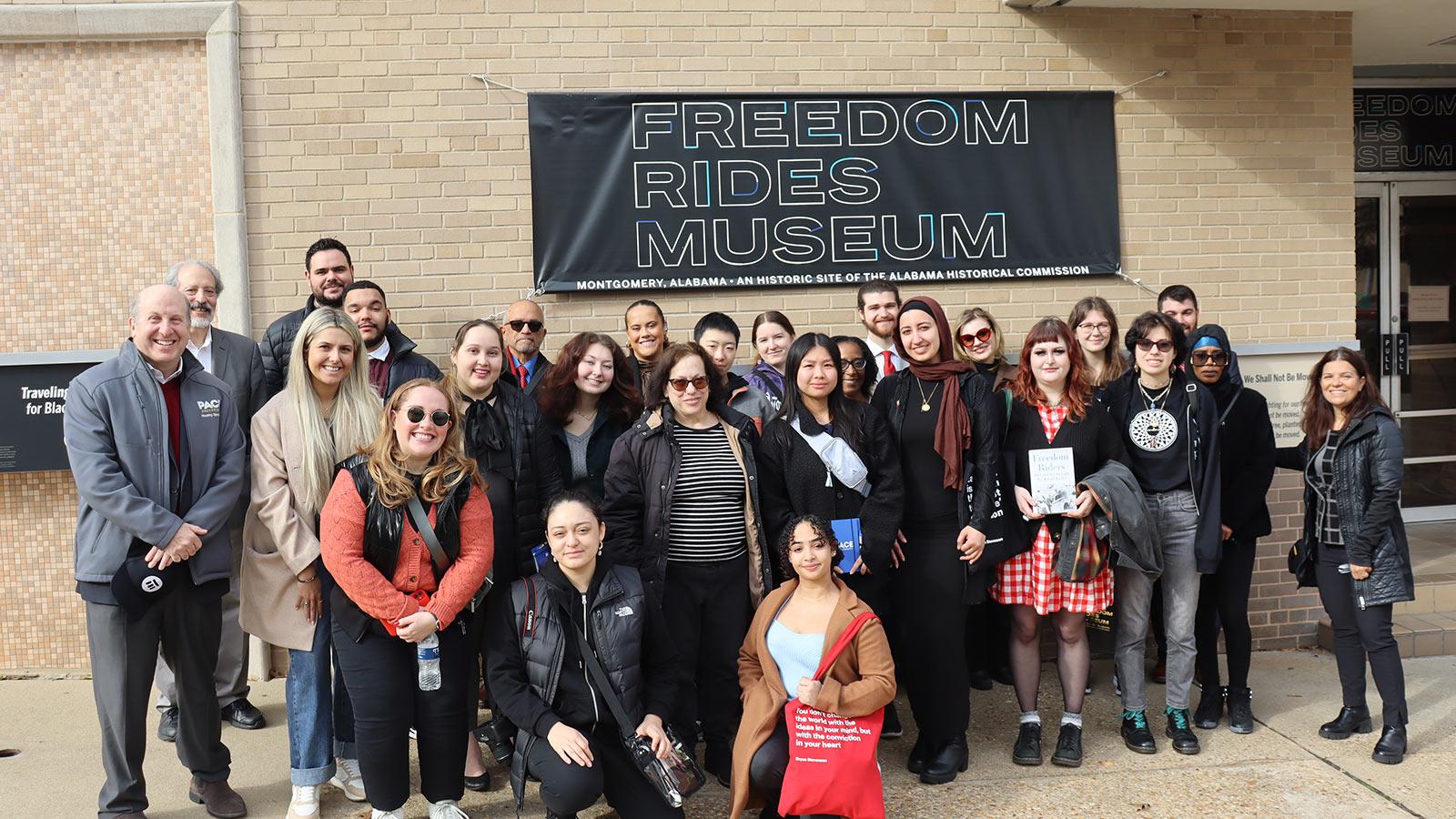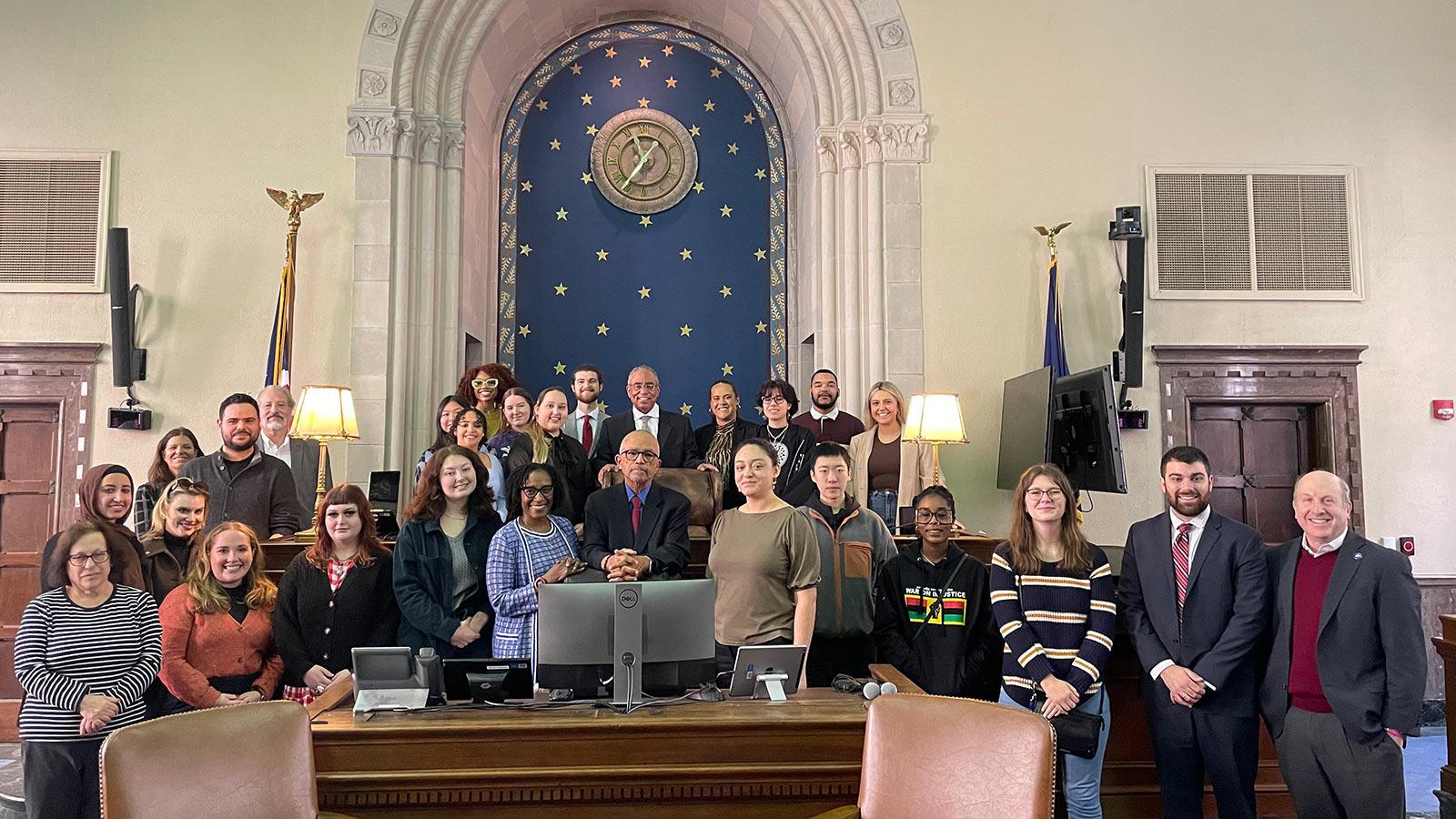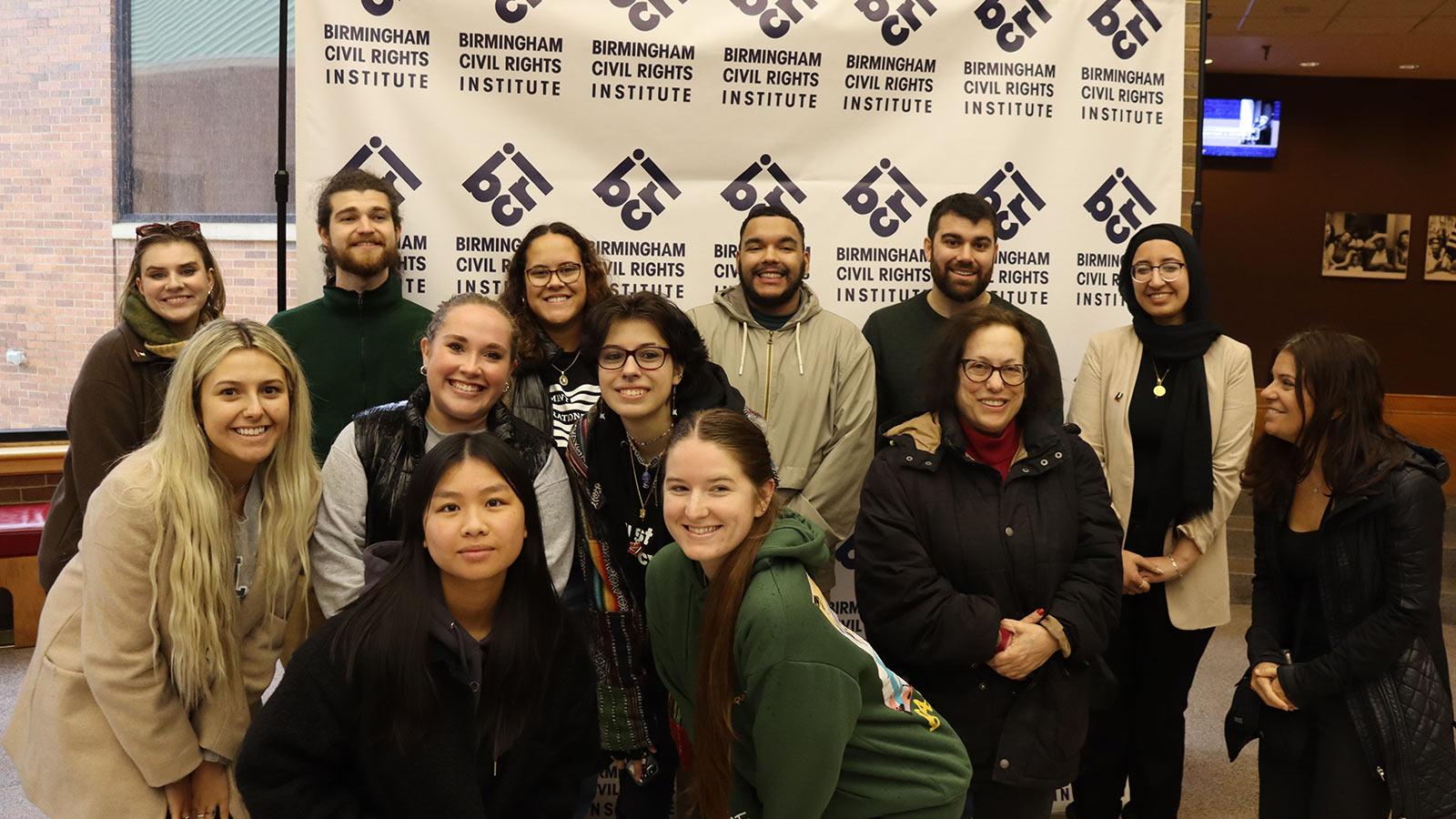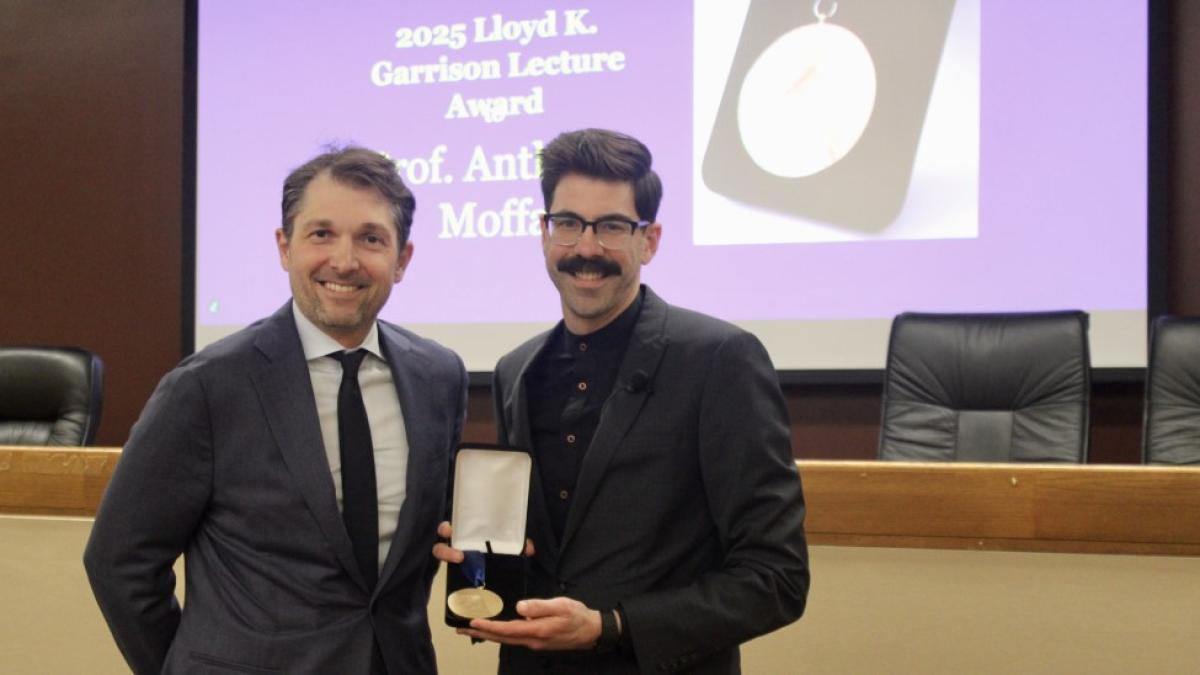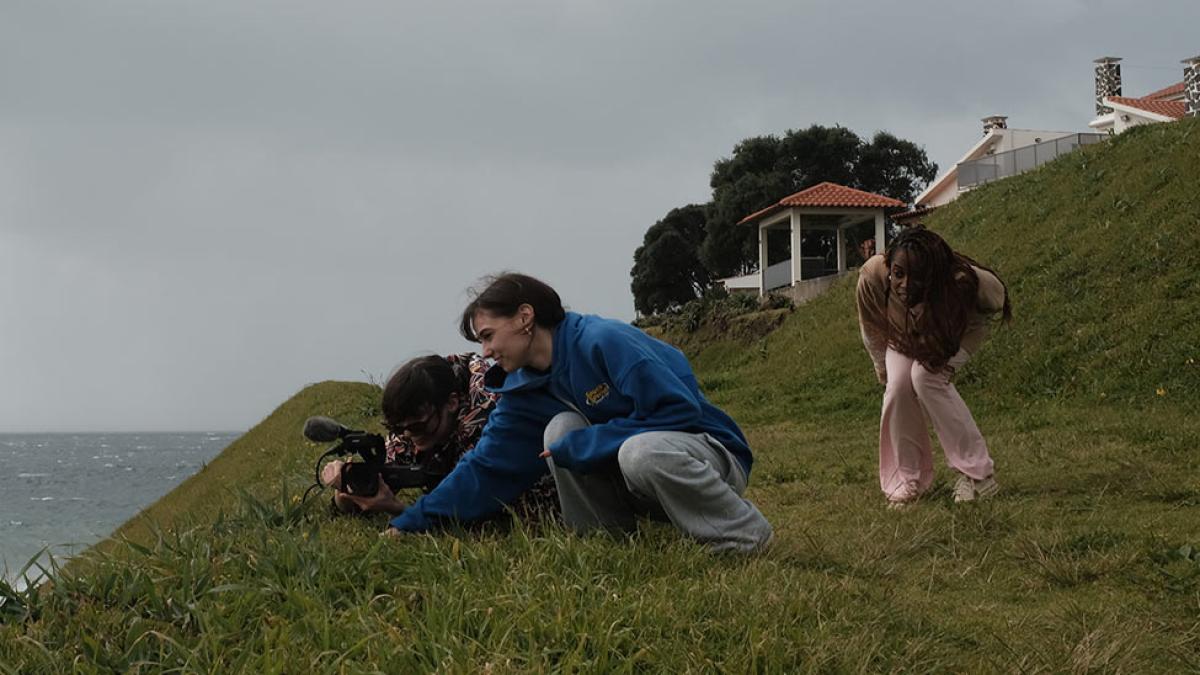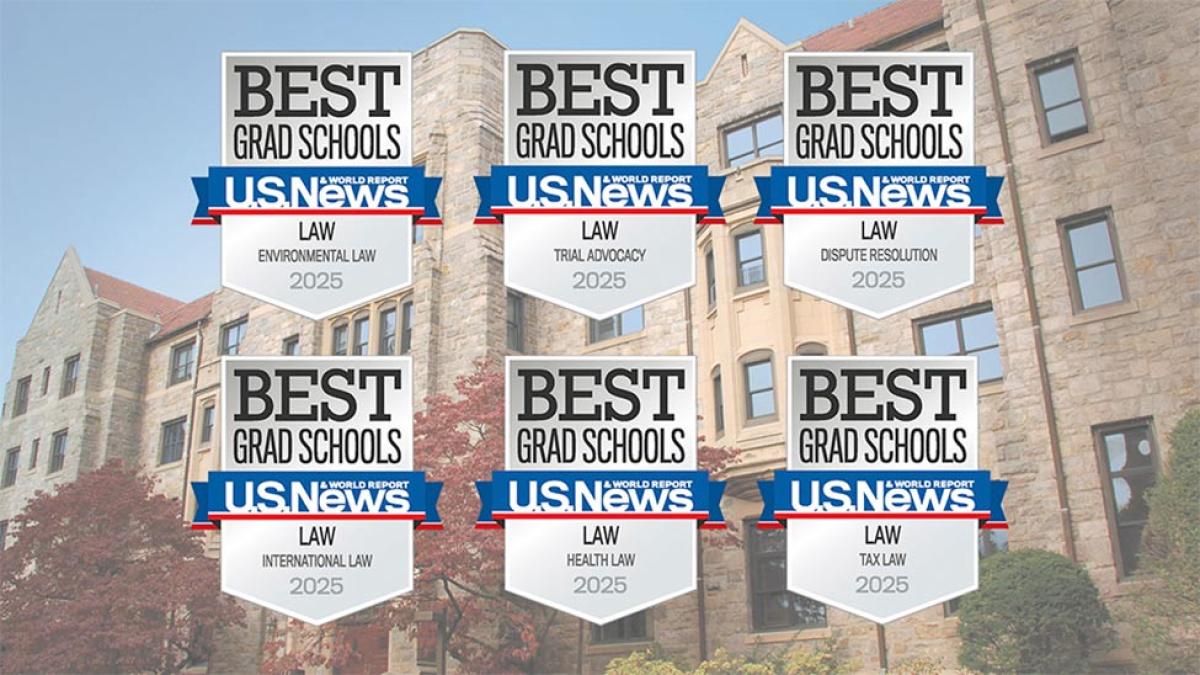Professor Anthony Moffa delivered the Annual Lloyd K. Garrison Lecture on Environmental Law on Thursday, April 3 on" Back to the Future for Climate Liability." The Lloyd K. Garrison Lecture on Environmental Law was established in memory of Lloyd K. Garrison in 1995. Professor Anthony Moffa currently serves as a Haub Visiting Scholar at the Elisabeth Haub School of Law at Pace University. He is also a Professor and Associate Dean for Innovation at University of Maine School of Law, where he oversees the Environmental and Oceans Law Certificate Program.
Pace University Engages in Transformative Civil Rights Field Study in Alabama
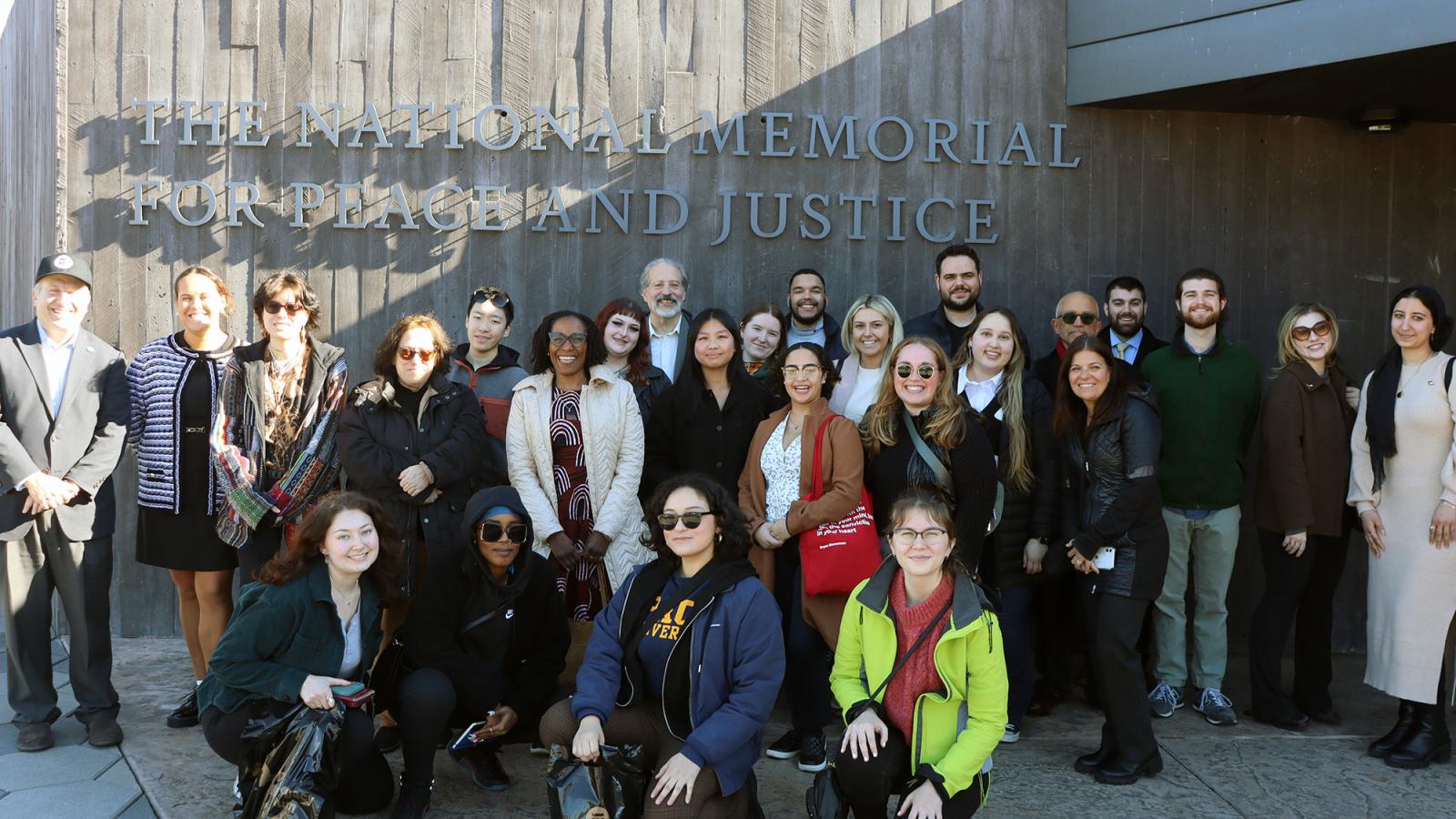
Focused on understanding social justice, combating mass incarceration, and confronting inequality
Over 20 students, professors, and administrators from the Elisabeth Haub School of Law and Dyson College of Arts and Sciences at Pace University spent four days during their winter break in Montgomery and Birmingham, Alabama, visiting the offices of the Equal Justice Initiative (EJI) and several historical sites for an intense interdisciplinary civil rights field study.
Founded in 1989 by Bryan Stevenson, a widely acclaimed public interest lawyer and bestselling author of Just Mercy, EJI is a private, 501(c)(3) nonprofit organization that provides legal representation to people who have been illegally convicted, unfairly sentenced, or abused in state jails and prisons. In 2018, EJI opened the National Memorial for Peace and Justice, dedicated to victims of slavery, lynching, and racial segregation, and the Legacy Museum, which recounts the history of slavery and continuing forms of racial injustice in the United States.
“I’m so pleased that President Krislov was able to facilitate this unique opportunity for our students,” said Haub Law Dean Horace E. Anderson Jr. “They not only received an unparalleled field experience, but they did so in an interdisciplinary way, demonstrating the partnership opportunity between law and the humanities.”
During the first day, students visited the Legacy Museum, travelling through 400 years of American history – from enslavement to racial terrorism, to codified segregation, to mass incarceration. Next, students visited the National Memorial for Peace and Justice, the nation’s first comprehensive memorial dedicated to the victim of racial terror lynchings. EJI’s Staff Attorney, Sofia McDonald then met with Pace faculty and students to inform them more about the work of EJI. After an insightful day, students were able to debrief with faculty and discuss their experiences among each other.
For Political Science major McKenna Crenshaw ’27, her introduction to EJI occurred during her sophomore year of high school through reading Just Mercy. Bryan Stevenson's inspiring work fueled her ambition, aspiring to contribute to EJI in the future. “I was absolutely blown away by the beautiful Legacy Museum and National Memorial for Peace and Justice,” said Crenshaw. “The heavy history and themes that the organization explored took its toll, but gave you space to digest and take in. It truly was an experience that you can only experience for yourself to understand.”
The following day, Pace visited the Freedom Rides Museum, located at the historic Greyhound bus station that tells the story of the Freedom Rides of 1961 and the Civil Rights Movement in Alabama through interactive exhibits, oral histories, and educational programming.
Faculty and students had the privilege of visiting the Federal Courthouse to meet Judge Myron Thompson, a United States District Judge for the Middle District of Alabama. He was nominated to that seat in September 1980 by President Jimmy Carter. In fact, he was the first African American Assistant Attorney General for the State of Alabama, the first African American bar examiner for the State, and the second African American federal judge in the State. Judge Thompson shared his experiences from his career and further history of Alabama with faculty and students. He even mentioned he contributed to the development of legal scholarship by serving as Jurist-in-Residence at the Elisabeth Haub School of Law in 2012.
“We are delighted that the civil rights field study to Alabama has not only enriched the experiences of our students and faculty but has also served as a source of inspiration,” said Tresmaine R. Grimes, Ph.D., dean of the Dyson College of Arts and Science. “At Pace, experiential learning is not just a part of our identity; it is the essence of who we are. Pace remains committed to amplifying experiential opportunities like this.”
Pace also visited the Alabama State Capitol, Department of Archives Museums of Alabama, Historic Bethel Baptist Church, Birmingham Civil Rights Institute, and the 16th Street Baptist Church.
“I am immensely grateful for the opportunity to have visited the various historical sites and landmarks that shed light on the struggles and triumphs of the civil rights movement,” said Haub Law student Madison Lane ‘25. “Walking in the footsteps of those who fought diligently for justice and equality was a humbling and eye-opening experience. It deepened my understanding of the challenges faced by marginalized communities and the importance of continuing the fight for social justice.”
“Students were so engaged and enthusiastic, as was I”, said criminal justice Professor Aviva Glasner. “This is an experience that is both indescribable and teachable and I look forward to sharing with my students everything I learned and will continue to learn”.
Check out additional photos from Pace University's civil rights field study to Alabama.
About Pace University
Since 1906, Pace University has been transforming the lives of its diverse students—academically, professionally, and socioeconomically. With campuses in New York City and Westchester County, Pace offers bachelor, master, and doctoral degree programs to 13,600 students in its College of Health Professions, Dyson College of Arts and Sciences, Elisabeth Haub School of Law, Lubin School of Business, Sands College of Performing Arts, School of Education, and Seidenberg School of Computer Science and Information Systems.
About Elisabeth Haub School of Law at Pace University
Elisabeth Haub School of Law at Pace University offers JD and Masters of Law degrees in both Environmental and International Law, as well as a Doctor of Juridical Science (SJD) in Environmental Law. The school, housed on the University’s campus in White Plains, NY, opened its doors in 1976 and has more than 9,000 alumni around the world. The school maintains a unique philosophy and approach to legal education that strikes an important balance between practice and theory. Haub Law launched its Environmental Law Program in 1978, and it has long been ranked among the world’s leading university programs, with a current #1 ranking by U.S. News and World Report. Pace’s doctoral graduates teach environmental law at universities around the world. Pace’s JD alumni are prominent in environmental law firms, agencies and non-profit organizations across the U.S. and abroad. In 2016, the Law School received a transformational gift from the family of Elisabeth Haub, in recognition of its outstanding environmental law programs.
About Dyson College of Arts and Sciences
Pace University’s liberal arts college, Dyson College, offers more than 50 programs, spanning the arts and humanities, natural sciences, social sciences, and pre-professional programs (including pre-medicine, pre-veterinary, and pre-law), as well as many courses that fulfill core curriculum requirements. The College offers access to numerous opportunities for internships, cooperative education and other hands-on learning experiences that complement in-class learning in preparing graduates for career and graduate/professional education choices.
